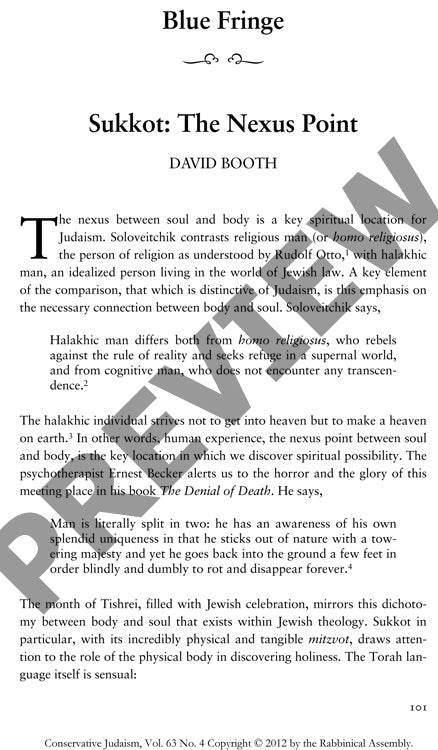Sukkot the Nexus Point
Couldn't load pickup availability
The Jewish festival of Sukkot stands as a vivid demonstration of how physical ritual can bridge corporeal and spiritual dimensions of human experience. Through theological analysis and rabbinic textual interpretation, this investigation reveals how Sukkot's embodied practices exemplify Judaism's distinctive integration of body and soul in religious life. Drawing primarily on Joseph Soloveitchik's concept of halakhic man and Ernest Becker's existential psychology, the research combines close reading of Talmudic sources with comparative analysis of religious typologies, particularly contrasting Judaism's embodied spirituality with Rudolf Otto's conception of homo religiosus. The sensual commandments of Sukkot—involving the four species (etrog, lulav, myrtle, and willow)—create opportunities for discovering holiness through the deliberate integration of bodily appetite and spiritual desire. Rabbinic literature presents this body-soul nexus as essential for both sin and sanctification, with Torah serving as the transformative medium. Ultimately, Sukkot's emphasis on physical engagement with ritual objects exemplifies Judaism's commitment to creating holiness within material existence rather than transcending it, generating the distinctive joy (simhah shel mitzvah) characteristic of halakhic observance.

More Information
-
Physical Description
-
Publication Information
Published 2012
ISBN
-
Publication Credits
David Booth

